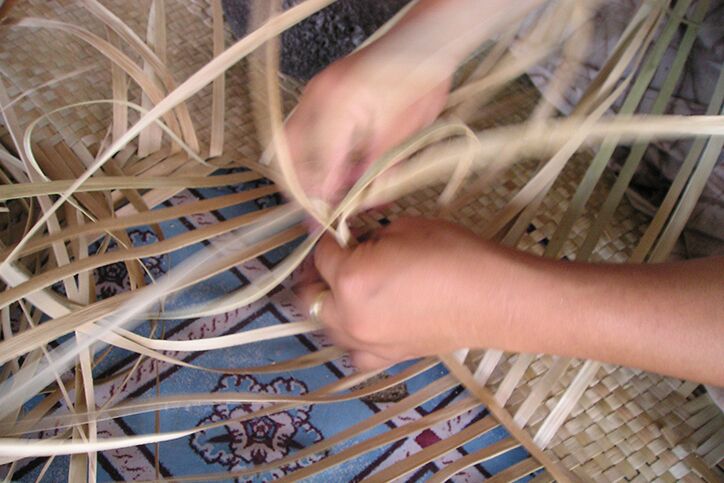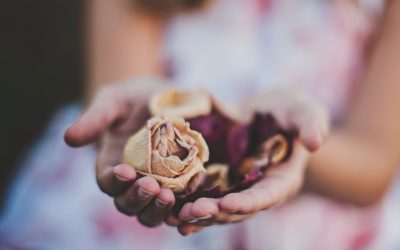Here in America and in most of Canada, we have funeral traditions that have stood the test of time for decades, even centuries.
But our traditions are vastly different from those in other countries and cultures.
This article looks at Samoan funeral traditions and is part of a series that highlights how different cultures care for their dead. Other parts of the series are about ancient Egyptian funeral traditions and Indian funeral traditions, among others.
Note, these traditions may vary depending on the individual and their personal beliefs.
Samoan Culture
Samoa is an island nation located northeast of Australia and New Zealand. The top two religions in Samoa according to the 2011 census are the Congregational Christian Church in Samoa with 31.8% and Roman Catholic with 19.4%.
Samoans believe in following Fa’a Samoa, meaning The Samoan Way. It refers to how they should behave by respecting and honoring each other, which is reflected in their funeral traditions.
Pre-Funeral Rituals
When someone passes away, their family meets to determine the funeral arrangements. Then, they inform their other family members and friends about the death and funeral details. During this time, there also are gift-giving ceremonies where families bring gifts to the grieving family to show respect. Some common gifts include corn beef boxes, chicken boxes, and fine mats.
Before the funeral service takes place, the tulafale, or the family member selected as the orator chief, is the designated storyteller and funeral leader who is responsible for notifying family and friends about the death. The tulafale also leads a special ceremony called saofa’i, where the family discusses any important decisions to be made about the deceased’s passing, shared stories, and have a feast — often using a Samoan umu, an Earth oven with heated rocks, to cook the food.
Funeral Service
Traditionally, Samoans believed in dying at home and being buried the day after death to prevent the spirit from causing any trouble or misfortune for their family, but this isn’t the case anymore with modern-day Samoan funerals. The funeral service is typically at a church and involves a lot of praying and singing. Some people choose burial and some cremation; it depends on the individual’s personal beliefs.
Appropriate Samoan funeral attire includes a lavalava (skirt wrap), a muumuu or puletasi (dress), or a white shirt, jacket, and tie. Guests give the grieving family monetary gifts or hand-woven mats in a ceremonial exchange of gifts called fa’alavelave. Like during the pre-funeral rituals, they also may bring corn beef boxes, chicken boxes, and fine mats. Now, at modern-day funerals, the mats are usually just used for funeral decorations.
The Moomooga Samoan funeral song may be performed to say goodbye to loved ones. Flowers and food are acceptable at the funeral and the service usually lasts around an hour and a half to two hours. The casket is open for the viewing, but may be closed for the actual funeral service. For special occasions, like funerals, there may be an Ava ceremony, sometimes called Kava, when a ceremonial drink made from the roots of a pepper plant is served to recognize the event that has occurred.
Mourning Period
The mourning period typically lasts for about two weeks, but there is no real timeline that can be set when it comes to grieving the loss of a loved one.
When disaster struck Samoa in 2009, a national day of mourning was declared to honor and remember those who had died in the devastating tsunami that took the lives of 143 people and destroyed villages. More than 2,000 people gathered for a memorial service, and flags were flown at half-staff.





Hi, I’m Samoan and most of this is wrong. Mu’umu’u are Hawaiian dresses, Samoans don’t wear them. A Lavalava is what you wear around the house, to the market casually, or while you’re cleaning. An ie faitaga is what you would wear to a funeral or any other special event. Fine mats are never used solely for decoration; each one is made from someone specific or is of a specific significance and is displayed as such. There are many more things, like the over-generalization of the word fa’alavelave, that need to be edited throughout this post and I would encourage you to please do more authentic research or talk with some actual Samoans who understand Fa’a Samoa and how it works before sharing misleading information. Samoans take this very seriously and it can look embarrassingly shameful if someone takes a misstep throughout the process.
Thank you so much for your feedback! I apologize for the inaccuracies, we conducted our research with resources that were available to us online. Unfortunately, we must have used an unreliable source. Please feel free to email me at samantha@frazerconsultants.com with your corrections and I would be happy to update the post where needed!
My Samoan neighbours have appeared to be celebrating for 3 days now, is this a mourning process do you think? Another kind of celebration? It seems to be a lot of family everyday.. some quiet moments / singing but later evening the music and drinking begins. Just wondering if this is a celebration or mourning so I can react.. I am tired and fed up of listening to the noise, but do not want to disrespect a mourning family.
– the house is about 10 meters from my bedroom window.
Hello Melanie!
Typically a Samoan funeral can take up to 2 weeks. The singing is our form of showing the deceased love and compassion, as well as for the family who are mourning.
As for the loud music and drinking, I guess you could say it’s a form of celebration. Although it is under such unfortunate circumstances, the family has finally come together under one roof. Therefore, they celebrate.
Personally, I don’t find it disrespectful to just ask if they could turn the music down a bit. But not all us Samoans are the same. Hehe
Good luck!
<3
A co-worker’s mother passed and I would like to send flowers for the funeral. Would suggest the type of flowers to send for the funeral. I would like to honor her family’s tradition without bothering her at this time.
Thank you for taking the time to put your work into this. I am researching Samoa for a school project. this was very helpful. Thank you!
what school do you go to
My mother raised me that mourning… Lasts a year. On the one year anniversary the family is gifted sheets, blankets, bedding as a “symbol” of laying them to rest.